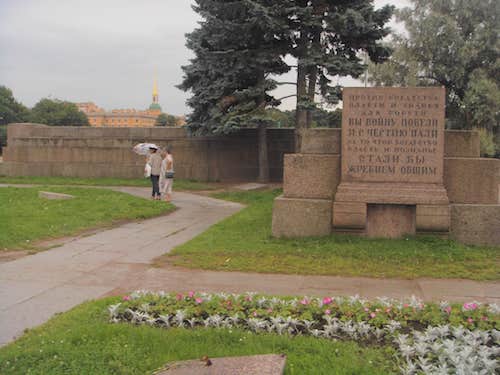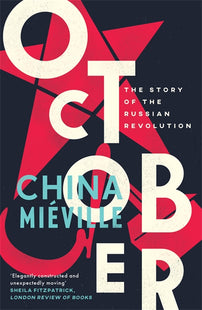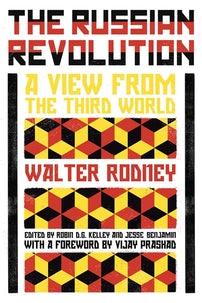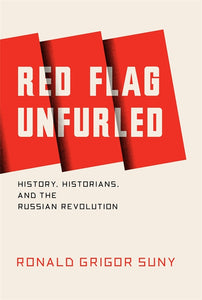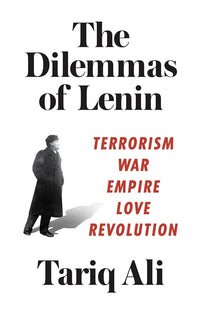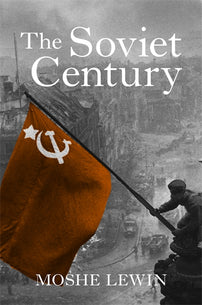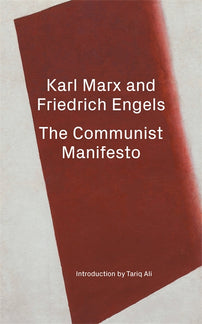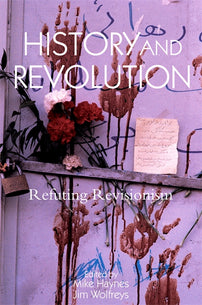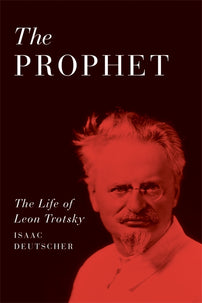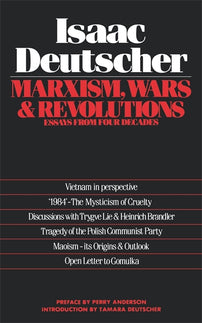After the End of the World: Re-reading the Russian Revolution
Owen Hatherley surveys the Russian Revolution centennial literature.
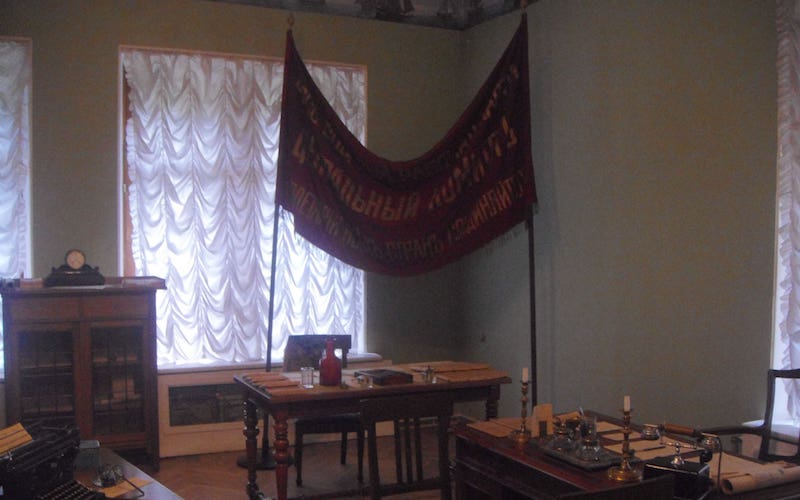
First published in New Socialist. All photos by Owen Hatherley.
At a public lecture at the London School of Economics this summer, Sheila Fitzpatrick lamented that the end of the Cold War meant that there was little energy in the commemoration of the two Russian revolutions of 1917. On the 50th anniversary, it was seen as the event that created the modern world; now, it is largely seen, even on the left, as little more than the opening up of a bloody historical cul-de-sac. I have, however, in front of me nine books published on the anniversary of 1917 which maintain an undimmed fervour for their side of the argument. All are by men, mostly "of a certain age." There are two general histories, with differing time periods (1905 to 1921 for one, 1890 to 1928 for another); there is a book solely on the year of revolution by a post-Trotskyist fantasy novelist; there is a book of advocacy for the independent Georgia that briefly emerged from the revolutionary turmoil; there is a book on urban communes, a book on a luxury flat complex for the Soviet elite that doubles as a study of apocalyptic religious movements; there is a book that imagines what would have happened if the Bolsheviks had won (no, really won) — and there are no less than five books by "amateur historians" who don't read Russian (and nor do I). So, someone still cares. But is there anything new in any of this? Do any of them offer ideas or approaches to the events of 1917 that a resurgent left could learn from a century later?
The Old-Time Religion
In many ways, this is a hard question to answer because of how much 1917 Re-enactment Societies have plagued the left in Britain as everywhere else. The seizing of power in Edwardian St Petersburg by a vanguard party acting on behalf of an advanced proletariat has been reified as the only conceivable means of socialist change, undeterred either by the obvious fact that it has only happened once, or by the drastically unattractive eventual consequences of that seizure of power. Many of these books are by people who have served time in one of these groups, including the one that has received the most attention — and rightly so — China Mieville's October: The Story of the Russian Revolution. There are problems with the book — not necessarily on the grounds of Mieville's lack of Russian, given the prodigious (and delightfully waspishly annotated) bibliography, but more on the typically Trotskyist refusal to think too much about what happens next after the Bolshevik takeover, aside from a rather hand-waving epilogue noting that beyond lies "Gulags." Mieville's idea of what happens after revolution is encapsulated in the book's epigraph, the ellipses that Nikolai Chernyshevsky uses in a dream-sequence in his 19th century novel, so influential on 1917's revolutionaries, What is to be Done? This is intended to speak of open possibility (rather than Stalinist reality), but comes across as mystical rather than historical.

Joseph Stalin Memorial Museum, Gori, Georgia
Otherwise, October is a major achievement, and a fabulous read. It does something seemingly simple, in providing a highly readable account of the revolutionary year from a perspective sympathetic to, if not hagiographic towards, the Bolsheviks, but then nobody has previously written such a thing, especially not for a general audience. The nearest book by a scholar is Alexander Rabinowitch's excellent The Bolsheviks Come to Power (reissued this year by Pluto Press), but Mieville's crackling prose and eye for the anecdote or scenario that can sum up a political moment give it a charge of surreal excitement that is entirely new. His command of the scholarship of the last few decades means that he's fully aware of just how multinational the revolutionaries were, and how much the borderlands — not just Petrograd, but Latvia, Finland, Kazan (which played host to a strongly left-leaning All-Russian Muslim Women's Congress), Tashkent, Ossetia, Baku — became the drivers of revolutionary transformation. His sketching out of the Russian Empire's geography, the Tsarist autocracy and the small but decisive industrial working class is brief but totally convincing. These offstage events erupt around the main, familiar narrative. In a huge country that was rapidly industrialising under the rule of a medieval autocracy, the First World War exacerbates long-standing grievances both in an industrial proletariat concentrated in large high-tech factories, and in a land-hungry peasantry scattered across the Eurasian expanse; an unorganised insurrection in February brings to power a coalition of liberals and moderate socialists but fails to quell discontent, and after an abortive right-wing coup, the most extreme group on the left, the majority (Bolshevik, renamed Communist in 1918) wing of the Russian Social Democratic Labour Party builds enough support in the democratic councils (Soviets) of the factories and the army to take power in October. The story is told, and told extremely well, with a nicely iconoclastic eye for debunking famous myths that coexists with a genuinely epic sense of scope and drama. For anyone who already knows the story, what sticks in the mind is mood and detail — the strange, hysterical figure of Alexander Kerensky, the centrist Labour leader who tries to give WW1's pointless slaughter a socialist face, or the precipitous collapse of urban order in the weeks before the Bolshevik takeover, a haunting prefiguring of the terror, hunger, and depopulation that will follow.
October's virtues are especially visible when seen alongside another product of Mieville's own political "tradition" (the thinking wing of the British Socialist Workers Party, essentially). If you want the unadulterated old time religion, almost devoid of any recent research or reflection whatsoever, there is the prolific popular historian Neil Faulkner's A People's History of the Russian Revolution (Pluto). Early on, Faulkner justifies his lack of reading in Soviet studies with the claim that "much of it is poor fare" (evidently, his fellow ex-SWP member and fellow non-Russophone Mieville disagrees), and so relies on such hardy perennials as the voluminous works of the SWP's sainted founder Tony Cliff. Because of this, the telling of the tale is wearily familiar, perhaps aside from a cogent chapter of the effects of the First World War on the Russian Empire. Many of the ideas thrown around carelessly, such as on the "Asiatic character" of Russia, are now regarded with great suspicion by historians. If there is a new influence in the book that makes it visibly a product of 2017 and not 1977, it is via Lars T. Lih's research on Lenin, and in particular Lih's claim that Lenin's ideas were not fundamentally different from those of mainstream social democracy in Germany or France, and that notions that he envisaged a "new kind of Party" that was uniquely elitist or "vanguardist" are largely anachronistic. This is banalised by Faulkner into the following three points: that "Lenin was a democrat, not a 'democratic centralist,'" that "the revolution was a mass movement of the people based on participatory democracy," and that "Stalinism was a counter-revolutionary movement that destroyed the Bolshevik Party and Soviet democracy."
Forks in the Road
This rejection of the "Vanguard Party" is unorthodoxy in the ridiculous world of the rump SWP (their house journal Socialist Review sneers "get real, Neil – patiently building Leninist parties rooted in workers struggles remains the only way to overthrow capitalism"), but outside of it, that this is patronising simplification is patently obvious — the notion that arguments contrary to "Lenin was a democrat" are limited to the right would have astonished, say, Rosa Luxemburg, or the young Leon Trotsky. Faulkner's "People's History" is exactly the sort of simplistic, just-so-story that John Medhurst has come gunning for in his No Less Than Mystic – A History of Lenin and the Russian Revolution for a 21st Century Left (Repeater). Medhurst is a veteran trade unionist and self-described "amateur historian" best known for That Option No Longer Exists – Britain 1974-1976 (Zero, 2014), a stirring revisionist account of the first two years of the last pre-"New" Labour government. In that, Medhurst paid no mind to the many different traditions and party lines of the left. Not quite Old Labourite, Anarchist, or left-Communist (though with a sympathy for each), Medhurst argued instead for a peculiar left-libertarian version of social democracy, and in the course of that short, ideas-packed book almost managed to convince the reader that Harold Wilson could once have delivered it. No Less Than Mystic has a similarly tight time period (1917 to 1921, more or less), but is more than four times the length, and lacks the vivid voice of experience that enlivens that book and makes its eccentricities thought-provoking rather than irritating. Its basic argument is that, while the Bolshevik October had much popular support among the working class, it became within weeks the pretext for a vanguardist dictatorship, one which morally disgraced itself well over a decade before Stalin seized absolute power — and crucially, which suppressed socialist alternatives from early on. As an alternative to this regime, Medhurst argues that there should have been an alliance between the untrammelled libertarian forces of 1917 — the Anarchist-Communists, the Free Army of Nestor Makhno in southern Ukraine, the urban advocates of Workers Control, the Bolshevik Workers Opposition — and those in the established left parties that maintained a respect for democracy and law, like the left-wing of the huge peasant-based Socialist Revolutionary Party (SRs), the Russian Social Democratic Labour Party's Menshevik (minority) wing, or the more timorous Bolsheviks who advocated coalition government, like Lev Kamenev.
In that, I agree with him. Medhurst's account of the swift dismantlement, almost as soon as they had been established, of gains of 1917 like workers' autonomy, Soviet democracy, and public debate is convincing, if familiar from the likes of Maurice Brinton's The Bolsheviks and Workers Control. A socialist coalition government would surely have avoided much of the mutual bloodletting that made the Civil War that raged from 1918 to 1921 so horrific (quite how much the Bolsheviks are to blame here, rather than the Left SRs who left the coalition that actually existed after October because of their opposition to peace with Germany, and then went round bumping off foreign dignitaries, is questionable). Other responses to counter-revolution than mass executions and terror were surely "possible," whatever that means, even in the depths of Civil War. But to quote one of Medhurst's favourites, the Polish philosopher Leszek Kolakowski, "it amounts to saying that the world should be good, not bad, and I am entirely on your side in this issue." A historian has to explain why nobody at the time ever thought this anarcho-social-democratic coalition was plausible. The Constituent Assembly, the elected Parliament in which the Bolsheviks won the cities and the borderlands and the SR's won a landslide overall, was dispersed by Anarchist militia men.
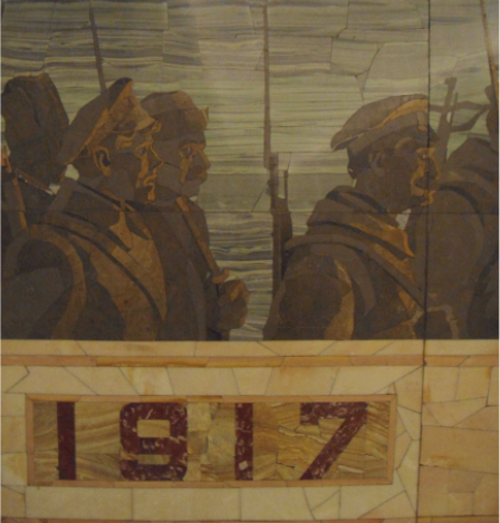
Baltic Metro Station, St. Petersburg
If it were as short as That Option No Longer Exists, then No Less Than Mystic could have been a similarly fun combination of historical trolling, counterfactual pondering, and labour history. Its character sketches are deft, it is sharp-witted and sometimes funny, and its lack of patience for Leninist and liberal orthodoxies is welcome. Yet the book's bloated size exposes its deficiencies horribly. Medhurst doesn't read Russian; of English sources, he has read much less than Mieville and much more than Faulkner, but the greater scope makes clear how little knowledge or sympathy he has of Russian culture and history — chapters on art, nationalism, and sexual morality are full of musty judgements, totally ignoring the huge amount of English-language scholarship since the 1970s that has complicated a simplistic "revolution and retreat" narrative. Worse still, Medhurst compounds this problem by picking fights with Bolshevik-sympathising historians that do work in archives. In arguing, for instance, that in Revolution and Counter-revolution, his study of a Moscow metalworks, Kevin Murphy deliberately excises information about anti-Bolshevik strikes during the Civil War, Medhurst may be right, but he can't prove such strikes actually happened in the factory Murphy is writing about, because he can't read the documents. The book is riddled with errors large and small, and is marred by utterly bizarre and anachronistic digressions into contemporary matters, usually as a stick to beat the Bolsheviks with. On criticising the Bolshevik suspicion of democracy, we get an encomium on Hugo Chavez and his many fairly contested and fairly won elections. On the Bolshevik fear of the property-loving peasantry, we juxtapose the better alternatives of Evo Morales's government in Bolivia, or the Zapatistas. When we find Lenin dismissing the "god-building" that unorthodox Bolsheviks like Lunacharsky or Bogdanov liked to philosophise about, we are told that Russell Brand's unique "pantheistic religion with a political focus" provides a way out of the Leninist impasse. These illuminate neither the present (where everyone is always right) or the past (where everyone, but especially the Bolsheviks, is always wrong). In these lengthy passages, Medhurst goes from amateur to pub bore.
But perhaps the biggest problem with No Less Than Mystic is in treating 1917-1921, as he does 1974 to 1976, as a series of "forks in the road where a radical but democratic socialist alternative could have been taken," a succession of possible alternatives to the eventual Bolshevik dictatorship. Unlike Britain in the 1970s (whose shift from radicalism to neoliberalism has long been presented as "inevitable"), liberals, social democrats, Anarchists, and Trotskyists have been telling themselves counterfactuals about Russia almost every day since 1918, to the point where study of what actually happened and why has been comparatively neglected on the left. It is absurd to take the same moral approach to a vast rural Empire descending into complete state collapse as to a wealthy modern democracy where the worst thing that happened was some power cuts. The Russian Empire in the late 1910s and early 1920s was closer in most respects to Somalia in the 1990s than to Britain in the mid-1970s, and this matters.
The inadequacy of this approach is maybe best seen in the chapter of praise to the Menshevik leader and former close collaborator of Lenin, Julius Martov. Undoubtedly a principled revolutionary socialist, Martov became the "Hamlet" of the revolution, in Medhurst's words, in refusing to endorse either October or the counter-revolutionary response to it. In this chapter, Medhurst sets great stall on a 1920 debate in Halle, Germany, held by the left-reformist Independent Social Democratic Party. Here, Martov faced the Bolshevik Grigory Zinoviev, who was trying to convince the organisation to affiliate to the Communist Party and the Soviet-led "Third" Communist International (succeeding Marx's 'First', and the mass reformist "Second," which still exists today), that he led. Here, principled democratic socialism met demagoguery in apologia for violent dictatorship. But if you consult the minutes — translated into English as Zinoviev and Martov Head to Head in Halle — what is so striking is the centrality to the debate of Bolshevism's embrace of anti-colonial politics. Zinoviev was fresh from the 1920 Baku Congress of the East, where the Communists were foolishly trying to make revolutionaries out of what their opponents in Halle derided as "Turks and Persians" and "the Mullahs of Khiva." Martov compares Bolshevik divorce reform to "Muslim polygamy." Here, he was speaking as an old-school social democrat, for whom feminism and anti-colonialism were faintly silly, whereas Zinoviev's perspective — "the Second International was restricted to people with white skin. The Third International does not classify people according to the colour of their skin" — was that of the future. Medhurst doesn't even notice this, and gives the Baku Congress half a paragraph, although non-European revolutions were, one would think, probably the most historically important and enduring outgrowths of Bolshevism.
This is compounded in a book shorter and more witless than No Less Than Mystic — the international relations scholar Philip Cunliffe's Lenin Lives! Reimagining the Russian Revolution 1917-2017 (Zero). This book is based on what we could call the "purloined letter" theory of the October revolution, popular both among the Bolsheviks themselves and their Trotskyist inheritors. That is, the revolution happened in the "wrong" country, and only made sense if it were followed by a revolution in Germany, and then across the advanced industrialised world, the original intended recipients of revolutionary Marxism. The defeat of abortive attempts in this direction in Germany, Hungary and Italy meant that already by 1920, the Bolsheviks had decided revolution was much more plausible in the colonial "East." They certainly had much more success there, in the outposts of "Asiatic Despotism." So if you ever thought you wanted a counterfactual book where the Bolshevik revolution really does spread to Germany and then France and then Britain and then the USA — leaving only the Middle East as a sort of decadent Vendee — and then proceeds to create a fully automated luxury communism of climate-controlled cities and unabashedly big science, well, is Lenin Lives! the book for you.

Independence Square Metro Station, Kiev
It reveals something latent in most of the non-Russian-reading books on the subject (Mieville excepted) — the belief that in many ways, the east was the problem, and that really, the revolution is our story, ours in the west, one that we have to wrest from the unworthy peasants and Asiatics who actually did the actual revolutions. Lenin Lives! is not unreservedly awful. There are some nice little gags — on golden toilets, and on the counterfactual lives of Stalin, Heidegger, and Churchill — but mostly, its imaginary future technocracy and unreflective chauvinism is as boring as it is brief. "Feminism and civil rights become redundant in this improved twentieth century," Cunliffe tells us, because, you see, the global Bolsheviks will have legislated the need for them out of existence — yes, it was really that easy. It's certainly easier than explaining why it was that the revolutionary "letter" didn't reach its intended recipient.
The most concrete of Medhurst's many "roads not taken" is the Menshevik-ruled independent Republic of Georgia, whose sad fate, suppressed by the Red Army in 1921, he discusses in lieu of a knowledgeable chapter on Bolshevik nationalities policy. This episode, little known in the west, is told in Eric Lee's The Experiment – Georgia's Forgotten Revolution, 1918-1921 (Zed). Simply for telling this obscure story well, Lee's book is of great value. After a series of peasant risings between 1902 and 1906, politics in this small, mountainous Orthodox Christian country in Western Asia became dominated by the Menshevik wing of the Russian Social Democratic Labour Party. In the Constituent Assembly elections of late 1917, where the Mensheviks were humiliated everywhere else, they won Georgia by a landslide. Intent, unsurprisingly, on maintaining their power in the country, they formed first a Transcaucasian Federation with Armenia and Azerbaijan, then quickly declared independence, under the military protection first of Germany, then of the British Empire, both of whom were keen that oil keep coming through the Georgian railways from Baku in Azerbaijan to the Georgian port of Batumi. In that time, the Mensheviks held elections, which they won again by a landslide, instituted an impressive and successful land reform, and encouraged trade unions and co-operatives, hence avoiding the bloody "War Communism" imposed on the peasantry to Georgia's north — something rather easier for the Georgians to do, given they didn't have to grapple with foreign intervention from every direction and pogromist reactionary armies on multiple fronts.
They also refused to help their embattled Bolshevik former comrades at a moment in which they were being slaughtered by the counter-revolution in nearby Azerbaijan (the Bolsheviks, Georgian leader Noe Zhordania pointed out, would lead Georgia "east," whereas alliance with Britain or Germany led them to "Europe," a problem of geographical misidentification which afflicts Georgian politics to this day), had nasty little wars with their neighbours for territory, specifically with Armenia, which was barely able to function as a state after the genocide of 1915, and suppressed risings by national minorities like the Abkhazians and Ossetians with a bloody ruthlessness that Trotsky recognised as kin to his own. Most of all, the Mensheviks manifestly failed to explain to themselves or anyone else how as exponents of workers-first urban social democracy they managed such spectacular success in a country even more rural than Russia. In 1921, Menshevik Georgia was suppressed by the Red Army on the orders of Georgian Bolsheviks Stalin and Ordzhonikidze, on the pretext of a fictitious Bolshevik uprising but in reality for the purposes of the Baku-Batumi railway. Lee suggests the invasion proceeded without the input, and possibly even without the initial knowledge, of either Lenin or Trotsky, yet persists in calling their chaotic regime "totalitarian." Like Bolshevik Russia, Menshevik Georgia had been visited by enthusiasts from abroad like Karl Kautsky and Ramsay Macdonald, whose accounts should be taken with the same pinches of salt reserved for the "I've seen the future and it works" screeds produced further north. Lee's editorialising is always pro-Menshevik, but his evidence points to an "experiment" as interesting, contradictory, and complex as that of the Bolsheviks, and no more so. When he finally argues "look at the Georgian experiment — that was democratic socialism," it is a rare unconvincing moment in a fascinating book.

Stalin Prospect, Gori, Georgia
It also makes inadvertently clear why the intra-socialist alliance that Medhurst admonishes for not happening was extremely implausible, even aside from Bolshevik intransigence. There is nobody we can retrospectively cheer on. Condemning the Bolsheviks for refusing to co-operate with a Menshevik government that had played host to British and German armies when both countries were desperately trying to suppress the Soviet experiment is hypocrisy. Both independent Georgia and Soviet Russia suppressed socialist opposition (the Georgian Bolsheviks were jailed and banned, only to be unbanned on the eve of the Red Army invasion), both were internationalist more in theory than in practice (although the Russian Bolsheviks were certainly less "Russian" in outlook and membership than the Georgian Mensheviks were "Georgian" in theirs), both used violence and coercion (the Bolsheviks more so), and both became peasant-populist in practice while remaining urbanist-workerist in theory. The first thing the left, of all stripes, needs to do in respect to 1917 is to stop endlessly trying to find heroes.
Complexity and Contradiction
There are few heroes, for instance, in Andy Willimott's Living the Revolution – Urban Communes and Soviet Socialism, 1917 to 1932 (Oxford), a study of the communes thrown up in 1917, which lasted in many cases right until the early 1930s. It is one of the four books in the pile written by people who can read Russian sources (one of them an actual Russian!), a ratio that is exceptionally hard to imagine were we discussing nine books on the anniversary of the French or American revolutions (another reminder that the east is different), and all of them, though they all have their axes to grind and their points to make, lack the tiring advocacy which afflicts the other anniversary books. On the face of it, Willimott's communards are exactly the sort of pioneers that a romantic leftist would love. Without much help from the central state, groups of young men and women took over flats and houses and tried to build communism in them, right now. They experimented with gender roles, they produced artworks and posters (the Women's Poster Army Commune was a real thing that existed), they wrote about themselves, and they struggled with the reactionary ideas of their peers and elders. Yet peer a little closer, and it's not quite so utopian. All of them were committed Bolsheviks, and most would go on to be committed Stalinists — the voluntarist appeal of Stalin's slogan "socialism in one country" was irresistible to people intent on building it in one building, one flat, or even one room. Moreover, the communes got their hands dirty in Stalin's first Five Year Plan, when the old Empire finally industrialised at appalling human cost. Many "production communes" sprang up in the new factories and factory towns, whose young enthusiasts were a persistent pest to older or less ideologically convinced workers.
What makes Living the Revolution's account of all this — based on archival research on people otherwise obscure — so different to the various tendentious anniversary books, is precisely in treating these people and their actions as history, which is not quite as obvious a thing to do as it may sound. In some ways these people were spectacularly advanced, in others totally rooted in their time. They did things "we" would approve of, and things we would not. At a time in which Soviet democracy was very long since dead, they practiced direct democracy right down to kitchen level, and did so while eagerly supporting the very people responsible for crushing democracy everywhere else. Their idea of communal life didn't involve letting it all hang out, but an almost Taylorist sense of discipline and order — but their sexual politics were as enlightened as anyone got anywhere on earth in the 1920s. Communards were activists, the loudest people in meetings, regulars on demonstrations, letter-writers to the newspapers, with boundless faith in the Communist idea. They come across as eventually admirable, and Willimott clearly does have more than a soft spot for them, but they helped drive down the living standards of their fellow workers. The "urban communes existed in-between autonomy and authority," and we shouldn't be shocked or surprised by this — in their time, they tried to advance socialism as they saw it, without the benefit of hindsight, marxists.org, or pub arguments about the Kronstadt rebellion.

Uprising Square Metro Station, St. Petersburg
They make an interesting comparison, in this respect, with the "characters," as the author calls them, at the other side of the socialist social scale in Yuri Slezkine's mindboggling The House of Government – A Saga of the Russian Revolution (Princeton). Obviously conceived initially just as a study of the Bolshevik elite via the huge classical-Constructivist apartment and leisure complex they had built for themselves opposite the Kremlin at the end of the '20s, Slezkine's book spiralled in its construction into something far more ambitious. An anthropologist as much as he is a historian, Slezkine uses the House as a means to construct an elaborate theoretical study of Bolshevism as an apocalyptic cult (something no more and no less true than, say, Neil Faulkner's portrait of it as a normal democratic socialist organisation) — a cult which, uniquely, managed to vanquish Babylon and build the New Jerusalem on its ruins, only to face a "great disappointment" when that pesky World Revolution failed to come to their aid, and they, accordingly, failed conspicuously to build paradise.
Like Willimott, Slezkine has much sympathy for the revolutionaries he's writing about, who are for the most part intelligent, widely read, and principled in their personal, if not always wider political, affairs. None are corrupt, none are "evil," even when they were enforcing collectivisation on Ukraine and Kazakhstan at the cost of hecatombs. Whereas the urban communards were just the footsoldiers carrying out the decrees, carving out their new space in old Tsarist tenements in Leningrad, Moscow, and Kiev, the habitués of this well-apportioned luxury apartment complex were those actually writing the decrees. The book is too gigantic and labyrinthine to even be put on the same level of the rest of these books — exciting and horribly compelling, often infuriating in its insistence on stressing the millenarian narrative at all costs. It's a terrifying hall of mirrors that is hard to imagine being "useful" to any particular political trend or approach, whether Bolshevik-apologetic or liberal-condemnatory. Ideas held dear by our pile of English books are dismissed as preposterous (Lenin as democrat, the Bolsheviks as Russian nationalists or state-builders, Moscow workers and the Red Terror as somehow opposed forces, rather than as workers doing the terrorising — to name just a few), and he does this casually, with the assistance of an imposing wall of archive research. Eventually, he ascribes the Bolsheviks' failure to transmit their Communist faith to their children and grandchildren to three things — they didn't ban and burn enough books, they didn't destroy the family, and they were too internationalist to ultimately rule a coherent state. What John Medhurst, Philip Cunliffe, or Neil Faulkner would make all of this I have no idea. I suspect they would find it all rather silly. Just not English or Empiricist enough. Too Russian, just like the revolution itself.

Memorial to the Arsenal Rising, Kiev
Finally, two books by left-leaning historians of Russia offer something perversely rare — reliable, readable synoptic books on the revolutionary years, written from a perspective that is sympathetic to revolutionary aims and desires yet which have no apparent desire to prove anyone wrong, to drive any points home or to win any pub arguments. Accordingly, of all of these books, they are the best for any beginner to start with, perhaps alongside Mieville's October. These are S.A Smith's Russia In Revolution – An Empire in Crisis, 1890-1928, and Mark D. Steinberg's The Russian Revolution 1905-1921 (both Oxford). Both of them give a great deal of attention to class, but refuse to use standard Marxist-Leninist categories in describing it — beasts familiar from GCSE History like "Kulaks" and "Nepmen" are here considered to be largely phantasmatic, figments of a Bolshevik attempt — backtracking somewhat from their astute identification of Russia's "combined and uneven development" — to use categories from the history of mainstream European capitalism to rule a society which mostly radically diverged from it. Both stress the geographical scale of the Russian Empire, with welcome attention to Central Asia, the Baltic, Ukraine, and the Caucasus. Both are fully aware that in terms of violence, the White Armies could easily exceed the massacres of the Bolsheviks, but they do not sweep Bolshevik violence under the carpet. They tell you what happened, and why. It's refreshing.
The Russian Revolution 1905-1921 combines the familiar narrative with an exercise in "history from below," with long extracts from the popular press, and from letters and accounts by peasants and workers — where they exist — alongside a second strand of extended portraits of particular individuals Steinberg believes are "indicative" of particular trends in the revolution. These are the Menshevik anti-Leninist turned authoritarian General Leon Trotsky, the Bolshevik feminist Alexandra Kollontai, the futurist poet Vladimir Mayakovsky, the Ukrainian novelist and national Communist Volodymyr Vynnychenko, the Odessa Jew and Red cavalryman Isaac Babel, and the Muslim reformer Mahmud Khoja Behbudi. These accounts are open-ended, with all the moral complexities of each one's position given their full weight. The fragments from "below" sketch in a mass of people who very much had their own ideas, which intersected only occasionally with those of any organised political parties. Meanwhile, we find socialists like the writer Maxim Gorky positively disgusted by the uncivilised behaviour of the workers and peasants, who could all too easily descend into "hooliganism." The Russian Revolution 1905-1921 sometimes has the feeling of a textbook, but better a serious textbook than yet another point-scoring screed by a middle-aged socialist. At moments, such as a pregnant passage on "Queer Time," Steinberg even points to places still unexplored. At the book's end, the brief evocation of a new leftist youth that "resist what we tell them is impossible to achieve" is more poignant and current than all the talk of Russell Brand and Evo Morales in No Less Than Mystic.
Russia in Revolution is motivated by similar sympathies, and by similarly immense research, but it is darker in tone. As it progresses, a picture becomes clear of a country collapsing into appalling chaos. There is more description of violence in this book than most of the others, and it is often sickening. The notion that this was a propitious time for experiments in workers' control or direct democracy, in a situation where trains did not run, armies on horseback criss-crossed the steppe and people ate leather, is not serious. This explains, but does not excuse, the Bolshevik eradication of revolutionary democratic experiment. In a sense, Smith's argument is — in words that would make John Medhurst's skin crawl — that "there was no alternative." Nobody was really serious about holding and wielding state power, aside of course from the White Armies themselves. The SRs thought they could work with the old Army and foreign powers, the Anarchists that they could work both with and against the Bolsheviks. The White Armies, meanwhile, believed that they could crush the revolution while refusing to compromise with the independent governments created (sometimes only briefly) by the power vacuum it created in eastern Europe and the Caucasus. They wanted the Empire back. They were also committed to the massacre of Jews on a scale unrivalled before the Holocaust. Smith sheds no tears for them, and nor should we.
In this context, the seven years between 1921 and 1928 when the Bolsheviks consolidated their power appear as a moment of peace and relief, hardly democratic, but marked by fascinating experiments in "indigenisation" of power in non-Russian republics, in the emancipation of women, and famously, in art, architecture, literature, and cinema. Then, the course is set for crash industrialisation and collectivisation, and the descent into hell starts once again. "It is beyond question," Smith argues, "that there was much in Leninist theory and practice that adumbrated Stalinism"; but "nonetheless we can be confident that (Trotsky or Bukharin) would not have unleashed anything like the violent collectivisation and Great Terror." Beyond that, Smith gives little succour to those who want to construct alternative Bolshevisms.
Memorial to the Fighters of the Revolution, The Field of Mars, St. Petersburg
This is what happened, and from the famine of 1933 to the purge of 1937 to the deportations of 1944, the results were appalling — hence, of course, all the attempts to prove it could have been otherwise. But it's over. It has been for some time. It tried, it failed, and in the process it at least defeated Hitler, scared the shit out of the United States, frightened capitalist Europe into reform, inspired and aided most of the major anti-colonial revolutions, built after Stalin's death a reasonably decent welfare state, and sent people into space. As the left reconstitutes in completely different circumstances — without being based on anything resembling either the peasantry of Tambov or the massified workers of the Baltic littoral, largely because for the most part such things do not exist — it should obviously read about 1917. It should read some of these books. Ordinary people moved onto the stage of history, and extraordinary things happened. But basing a politics upon its rock should now be seen as being as puzzling as the Bolshevik obsession with the time of the French revolution ("is it Thermidor yet? Are we the Jacobins or the Girondins? Which of us is Robespierre and which Napoleon?") or the stick-whittling English folk cult of the Levellers and the Diggers. They wanted what "we" want — equality, freedom, the destruction of capitalism. They are part of "our" history as socialists and communists, and attempts to expel the Bolshevik experiment from that history are dishonest and moralistic. But we cannot emulate them, and we should not, and most importantly, need not use their methods, their organisational strictures, their mechanistic analyses, their relentless making virtue out of necessity. The Bolsheviks are history, and that is not an insult. Let's leave them there.
[book-strip index="1" style="display"]